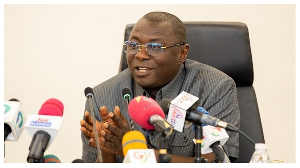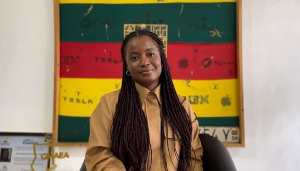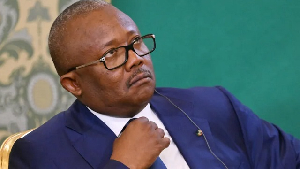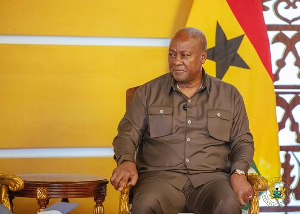He must take credit for both the positives and the negatives.
?The African Peer Review Mechanism (APRM) Report is a report on the performance of President Kufuor and his NPP Government. Let them take the credit for both the positives and the negatives, but for Heaven?s sake, let them do something about the negatives?, thus concluded a stunning NDC response to claims by Professor Samuel K. Adjepong, Chairman of the Governing Council of the Local APRM Committee and Professor K. Gyimah-Boadi of the Centre for Democratic Development (CDD) that the Report is not a judgement on the Kufuor administration but covers both the NPP and NDC eras.The NDC response was read by the Party?s National Organiser, Mr. Samuel Ofosu-Ampofo, at a well-attended Press Conference last Tuesday.
According to the NDC, the APRM Report disappointed the expectations of the NPP Government because the good things in its are not regime-specific, whilst the negative aspects are either regime-specific or personal to President Kufuor?s administration.
They gave as examples the Report?s finding of endemic corruption within the public sector, and appointments to the Supreme Court with the objective of manipulating the Judiciary to give judgements in the Government?s favour as happened in the Tsatsu Tsikata Fast Track High Court case, leading to the recommendation to cap the number of Supreme Court Justices that may be appointed.
The NDC tagged the reactions of the two eminent academics to the media presentation of the APRM Report a ?professorial defence? of the President and his Government, and systematically set out to demolish the arguments raised in the defence.
In response to the argument that the APRM is neither an assessment of the record of President Kufuor nor a review of the executive arm of the government, the NDC said ?peer review? can only refer to an individual, given the dictionary definition of the word.
In response to the argument that the Report spans both the NPP and NDC eras, the NDC asked whether it means that in the peer review of Rwanda and Nigeria, the periods of the Rwandan genocide and the Presidency of Sani Abacha would also be taken into account.
Professor Gyimah-Boadi had complained about sections of the media attributing the weaknesses in the Report to the current government.
The NDC asks why not, when other sections of the media are singing the praises of President Kufuor and attributing the positive comments in the Report to him.
Professor Gyimah Boadi had also compared Kufuor and the APRM Report to Rawlings and the Ghana Anti-Corruption Coalition (GACC) Report on Corruption in 2000 and explained that the NDC had been consistent in not wanting such Reports published in election years because of their likely prejudicial effects, citing the case of Professor Mills who last year advised against the publication of the APRM Report in that election year.
In any case, said Mr. Ofosu-Ampofo, ?the verdict on the NDC performance in office has twice been rendered, against the Party, in 2000 and 2004. The spotlight is now on President Kufuor and the NPP.
On the claim by Professor Adjepong that ?the APRM is not a scoring examination in which the country was awarded marks or graded?, Mr. Ofosu-Ampofo referred him to the Monday, June 20, 2005 edition of the ?Daily Graphic? in which the Minister for Regional Integration and NEPAD, Dr. K.K. Apraku, is reported to have said in Abuja that given the elaborate work done, he was optimistic that the country had already passed even before the results of the review were released.
Mr. Ofosu Ampofo regarded the reactions of the Professors as ex post facto rationalisations of what is perceived to be a largely negative assessment in the Report on Ghana, but that the reactions fly in the face of the facts and logic.
He blamed the pre-Abuja euphoria of the President, his government, his Party and the pro-NPP media as being largely responsible for the big letdown feeling of the President and also for nay misconceptions that the country may have about the review being of the performance of President Kufuor as opposed to the country.
The full text of the NDC Statement will be published in our next issue.
















